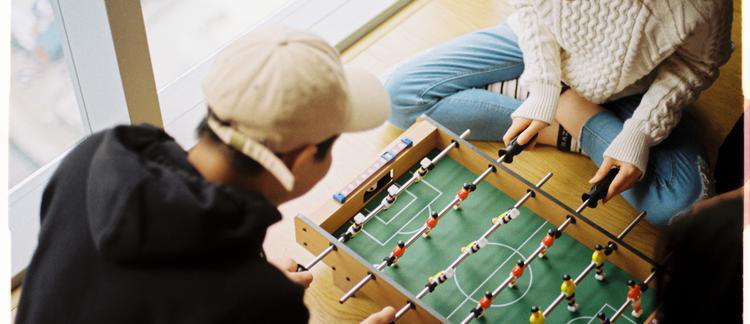Abstract
While imaginative play and sensory-stimulating activities are credited as benefitting childhood development, a growing body of literature suggests play is beneficial for adult development in terms of promoting emotional and physical well-being, facilitating inclusive social interactions, increasing productivity, and improving learning. Experts in library and information science and higher education are examining how best to implement play into academic libraries to better understand how play can have tangible outcomes on community building, student success, and knowledge creation. This paper will demonstrate how Lovejoy Library at Southern Illinois University Edwardsville has innovated library space to encourage practice-based play. We will provide insights into how other academic libraries can reimagine and redesign their spaces.We will discuss – through theories and our case study – the value of designing a library where we play every day. We understand student success is measured by retention and graduation rates; students are driven to graduate by outcomes (grades and degrees) and campus experiences (building community and a sense of belonging on campus). Academic libraries are uniquely situated to contribute to both motivators by creating spaces for formal and informal learning that are engaging, collaborative, and challenging. At Lovejoy Library, we innovated library space by theorizing play. Play is fun, engaging, spontaneous, disrupts power dynamics, and requires focus and rest; experiencing play is an act of mindfulness, essential to a student’s emotional health. Through renovations complete with a new MakerLab, furniture, equipment, resources, programs, and services, we created an environment to support student learning and well-being.
Keywords
Academic Libraries, Play Theory, Play
How to Cite
Williams, S. D. & Del Rio, L., (2022) “We Play Every Day”, The Journal of Play in Adulthood 4(2), 1-13. doi: https://doi.org/10.5920/jpa.1009
1382
Views
269
Downloads

